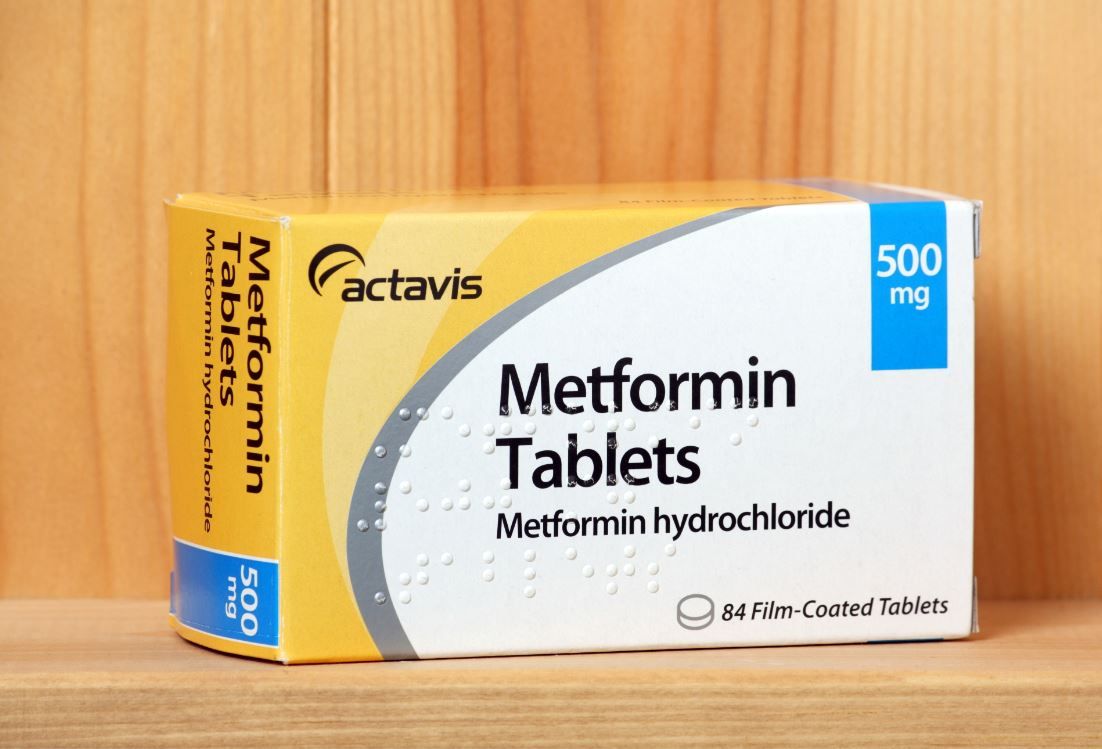- Clinical Technology
- Adult Immunization
- Hepatology
- Pediatric Immunization
- Screening
- Psychiatry
- Allergy
- Women's Health
- Cardiology
- Pediatrics
- Dermatology
- Endocrinology
- Pain Management
- Gastroenterology
- Infectious Disease
- Obesity Medicine
- Rheumatology
- Nephrology
- Neurology
- Pulmonology
Metformin Reduced Long COVID Risk by About 40% vs Placebo in a New Phase 3 Trial
More research is needed to determine whether metformin is also effective in patients with lower body mass index or with previous infection, said researchers.

Outpatient COVID-19 treatment with metformin decreased long COVID incidence by approximately 41% compared to placebo in a new study published in The Lancet Infectious Diseases.1
Researchers from the University of Minnesota conducted the COVID-OUT study to examine whether outpatient COVID-19 treatment with metformin, ivermectin, or fluvoxamine could reduce the risk of long COVID in adults with overweight or obesity.
“The results of this study are important because long COVID can have a significant impact on people’s lives,” said principal investigator Carolyn Bramante, MD, assistant professor at the University of Minnesota Medical School, in a press release.2 “Metformin is an inexpensive, safe and widely available drug, and its use as a preventive measure could have significant public health implications.”
Bramante and colleagues conducted the decentralized, quadruple-blind, parallel-group phase 3 study across 6 US sites. Adults aged 30-85 years with overweight or obesity who had COVID-19 symptoms for less than 7 days and a documented SARS-CoV-2 positive PCR antigen test within 3 days before enrollment were included in the study.1
Participants were randomly assigned to receive metformin plus ivermectin, metformin plus fluvoxamine, metformin plus placebo, ivermectin plus placebo, fluvoxamine plus placebo, or placebo plus placebo.
The primary outcome was severe COVID-19 by day 14 and the secondary outcome was long COVID diagnosis by a health care clinician, according to the study. Researchers noted that because the study was done remotely, “the a priori primary sample was a modified intention-to-treat sample, meaning that participants who did not receive any dose of study treatment were excluded.”1
Between December 30, 2020, and January 28, 2022, investigators assessed 6602 persons for eligibility, of whom 1431 were enrolled. Among 1323 participants in the primary, modified intention-to-treat population, 1126 consented for long-term follow-up and completed at least 1 survey after the assessment for long COVID at day 180 (564 received metformin and 562 received matched placebo).1
Overall, 1074 (95%) of 1126 adults (median age, 45 years; 43.9% women) finished at least 9 months of follow-up or reported a long COVID diagnosis, according to the study results.1
Investigators observed that among the 1126 participants who consented for long-term follow-up, 93 (8.3%) reported a receipt of long COVID diagnosis by day 300. The cumulative incidence of long COVID by day 300 was 6.3% (95% CI 4.2-8.2) in participants who received metformin and 10.4% (95% CI 7.8-12.9) in those who received placebo (hazard ratio [HR] 0.59, 95% CI 0.39-0.89; P=.012), according to the results.1
“The metformin beneficial effect was consistent across prespecified subgroups,”1 added Bramante and coauthors. They reported a HR of 0.37 (95% CI, 0.15–0.95) when metformin was initiated within 3 days of symptom onset.1
Investigators found no effect on cumulative incidence of long COVID with ivermectin (HR 0.99, 95% CI 0.59-1.64) or fluvoxamine (HR 1.36, 95% CI 0.78-2.34) compared with placebo.1
“People with long COVID frequently require continued medical treatment or are unable to work for 6 months or longer. Although disease prevention is a public health challenge, taking the next steps to implement metformin as a COVID-19 treatment to prevent long COVID is an urgent public health need,” wrote Bramante et al.1
References:
1. Bramante CT, Buse JB, Liebovitz DM, et al. Outpatient treatment of COVID-19 and incidence of post-COVID-19 condition over 10 months (COVID-OUT): A multicentre, randomised, quadruple-blind, parallel-group, phase 3 trial. Lancet Infect Dis. Published online June 8, 2023. doi:10.1016/S1473-3099(23)00299-2.
2. Study shows metformin lowers the risk of getting long COVID [press release]. Minneapolis, MN: University of Minnesota Medical School; June 9, 2023.
Obesity Linked to Faster Alzheimer Disease Progression in Longitudinal Blood Biomarker Analysis
December 2nd 2025Biomarker trajectories over 5 years in study participants with AD show steeper rises in pTau217, NfL, and amyloid burden among those with obesity, highlighting risk factor relevance.
